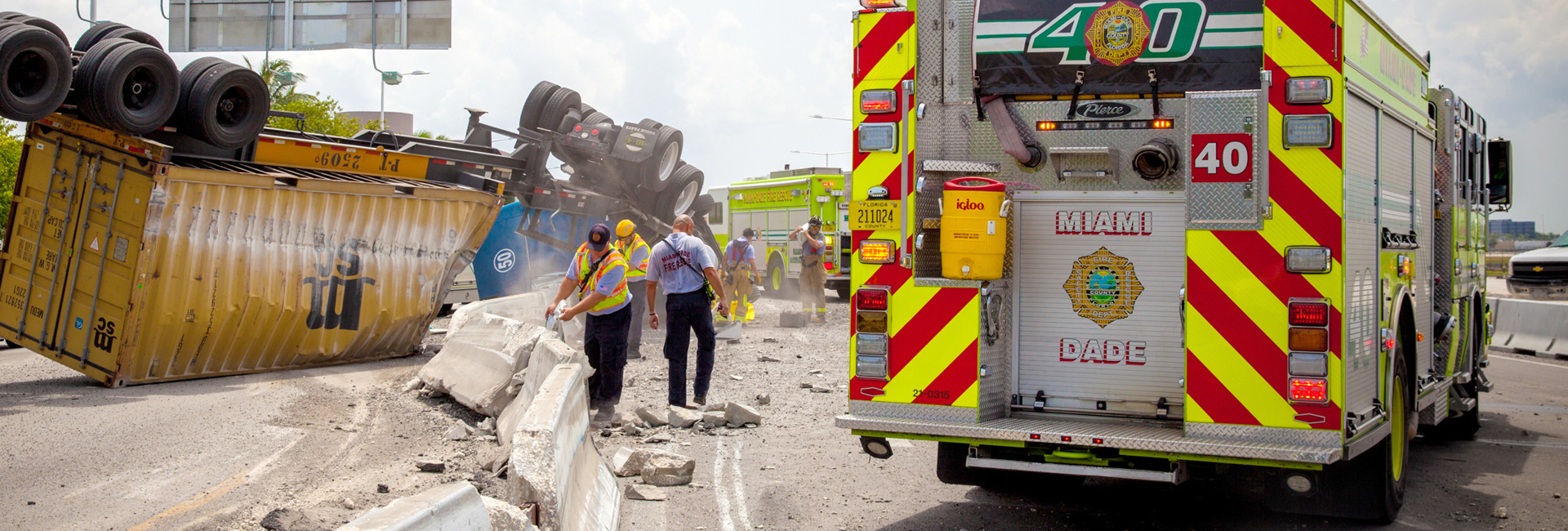Safety Tips: Poisoning
Millions of people, mostly young children, are unintentionally poisoned every year. A poison is defined as any substance that can cause unintended symptoms or harmful effects. Many common products and substances can produce very serious and even fatal effects.
Poisons generally come in four different forms:
- Solid Poisons - medicines, plants, powders (like laundry soap and automatic dishwasher detergent), granular pesticides and fertilizers.
- Liquid Poisons - lotion, liquid laundry soap, furniture polish, lighter fluid and syrup medicines. Liquids are especially dangerous because a large quantity can be swallowed in a short period of time and they are absorbed rapidly.
- Sprays - insecticides, spray paint and some cleaning products. Aerosol sprays may also be flammable, explode and cause damage to the heart and lungs if inhaled.
- Invisible Poisons - Gases or vapors from various sources, including Carbon Monoxide (CO) found in exhaust fumes from automobiles, generators, and grills.
Sixty percent of all poisonings occur in children under the age of six. The most common products involved in poisonings are prescription and over-the-counter drugs, household and chemical products, plants and cosmetics.
Most poisonings are preventable. Careful storage and labeling of medicines and other harmful products can help prevent emergencies.
Here are some tips for homes with children:
- Keep medicines and other potentially harmful products in their original containers. They usually have child proof mechanisms and they provide important information about the product and how to treat accidental poisonings.
- Be aware that childproof caps are not really childproof. They are only child resistant. If a child is given enough time, he will likely be able to open the container eventually.
- Don’t rely on containers to keep children away from poisons; you must keep all potential poisons away from children, by storing them well out of reach or in a cabinet that can be locked.
- Remember that medicines and other chemicals are often kept in purses and diaper bags, so keep them out of reach.
- Many poisonings occur when the product is in use. Keep products out of reach and within sight at all times. Return them to safe storage immediately after use.
- Make sure all plants in and around your home are not poisonous.
- And of course, nothing can replace constant supervision.
Elderly people or those with visual impairments should label all medicines and household products with large, clearly visible lettering to avoid accidental misuse.
If a poisoning occurs, remain calm and call the Poison Control Center, your doctor, or 911.
Have the following information ready:
- Victim’s condition.
- Name of the product and ingredients.
- How much of the product was taken.
- Time the poisoning occurred.
- Age and weight of the victim.
- Your name and phone number.
Poison Control Center personnel on the telephone will tell you what to do next. Have the product container in hand, if possible, and be prepared to follow some directions in order to help the victim until help arrives. Or in some cases, less serious poisonings can be treated at home.
The toll-free number for Poison Control is 1-800-222-1222. They are staffed year-round with pharmacists and registered nurses, 24 hours a day, 7 days a week.
You can also call Poison Control for information about drug overdoses, bites and stings, food poisonings, poison prevention information and materials, including a telephone sticker and Emergency Action Card.

Fire Rescue
Raied "Ray" Jadallah
R. David Paulison Fire Rescue Headquarters
9300 NW 41st Street,
Miami, FL 33178-2414
786-331-5000

